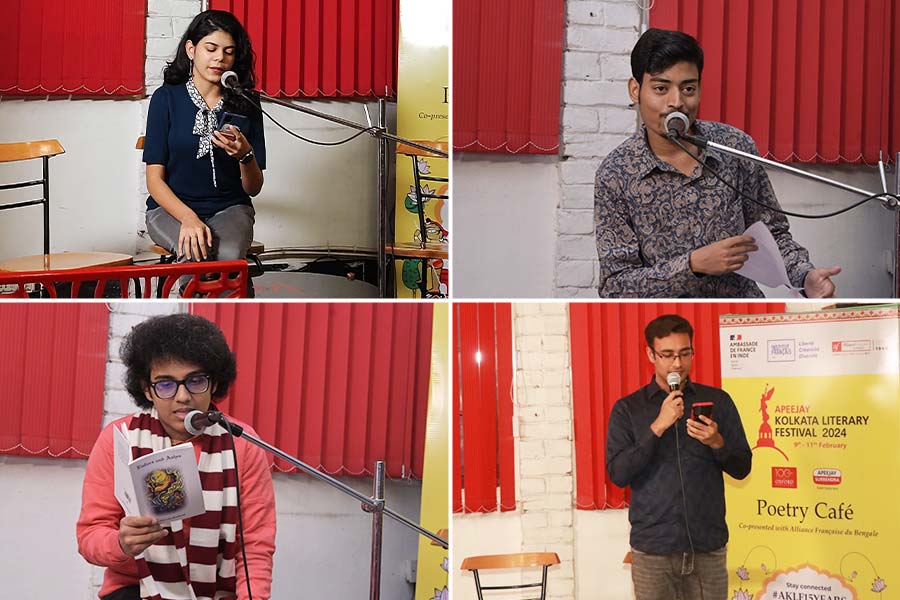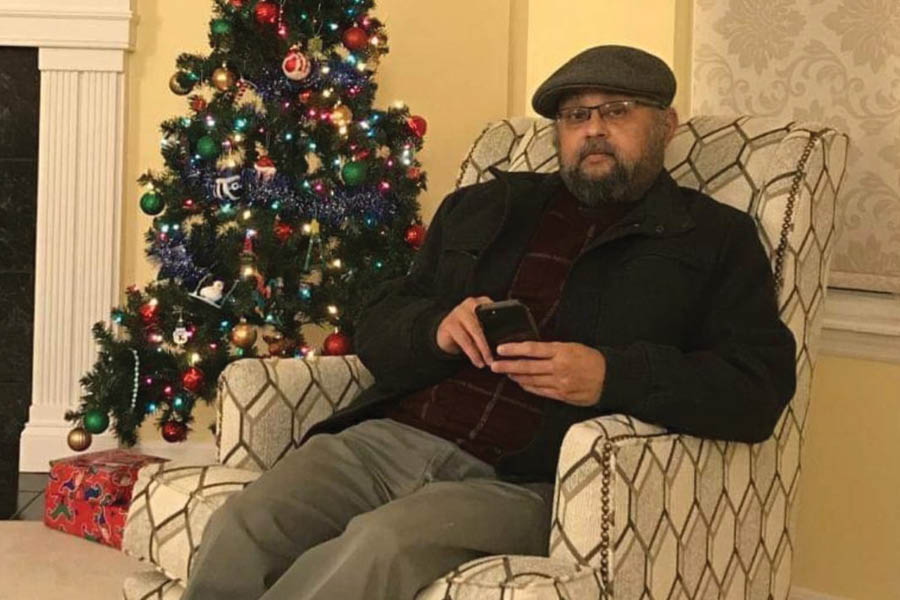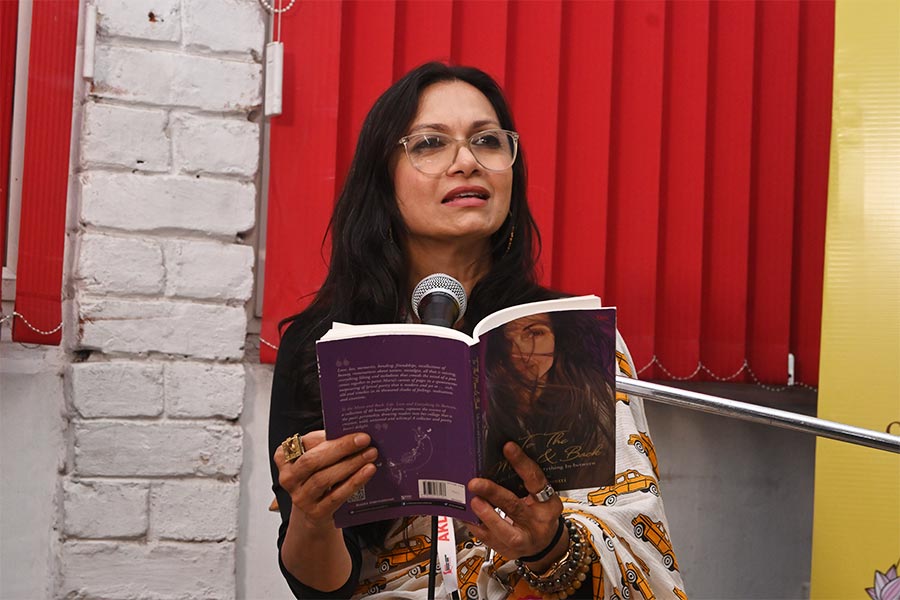Nancy H. Kleinbaum wrote in her novel, Dead Poets Society: ‘...medicine, law, business, engineering, these are noble pursuits and necessary to sustain life. But poetry, beauty, romance, love, these are what we stay alive for.’ In order to encourage the soul-stirring act of writing poetry, the 2024 edition of the Apeejay Kolkata Literary Festival held an open mic in February, at Alliance Francaise du Bengale. My Kolkata spoke to some of the poets in order to understand what drives their words.
Swaprabha Chattopadhyay, a third-year student at The West Bengal National University of Juridical Sciences, recited two Bengali poems — titled Onno Swadhinota and Durga, both of which have been published in Pujabarshikis.
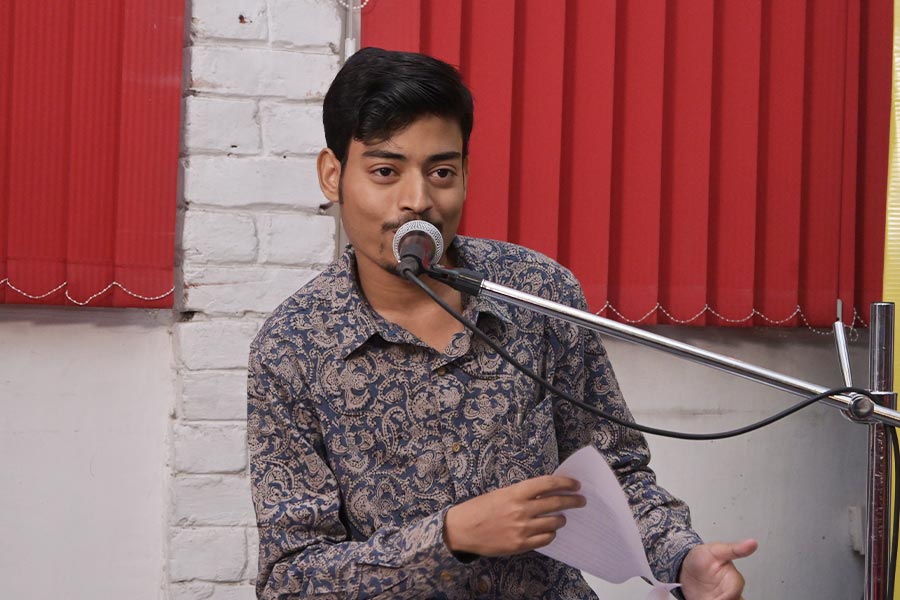
Swaprabha Chattopadhyay’s poetry is driven by the daily happenings around him
The first poem, which translates to ‘the other independence’, is a piece on social injustice and evils like child labour, which continue to plague our society. Swaprabha makes a bold case for how we still haven’t attained freedom – in the truest sense – from the ills that shackle our souls and minds.
Women’s empowerment is the theme of his second poem, which highlights the multi-faceted role of women in society. “I try to build upon how, while we worship goddess Durga as a divine entity who defeats evil, every girl has a Durga within herself who is capable of doing wonders,” he said.
‘Inspiration need not involve something really complex’
Inspired by the works of poets like Jibanananda Das and Shakti Chattopadhyay, Swaprabha’s poetry is driven by everything happening around him. “I feel that inspiration can come from simple and regular events, and need not involve something really complex. I seek inspiration from instances in my daily life. These can be the small details which often go unnoticed by unsuspecting eyes, unless captured in words,” he added.
For Debarati Pal, a Masters student at Jadavpur University’s Department of English, poetry is like medicine. “Reading and writing poems is a therapeutic experience, as it allows me to see myself better. Literature students are often steeped in academic rigour, but poetry helps me connect with my inner self as well as others who find solace in words,” she explained.
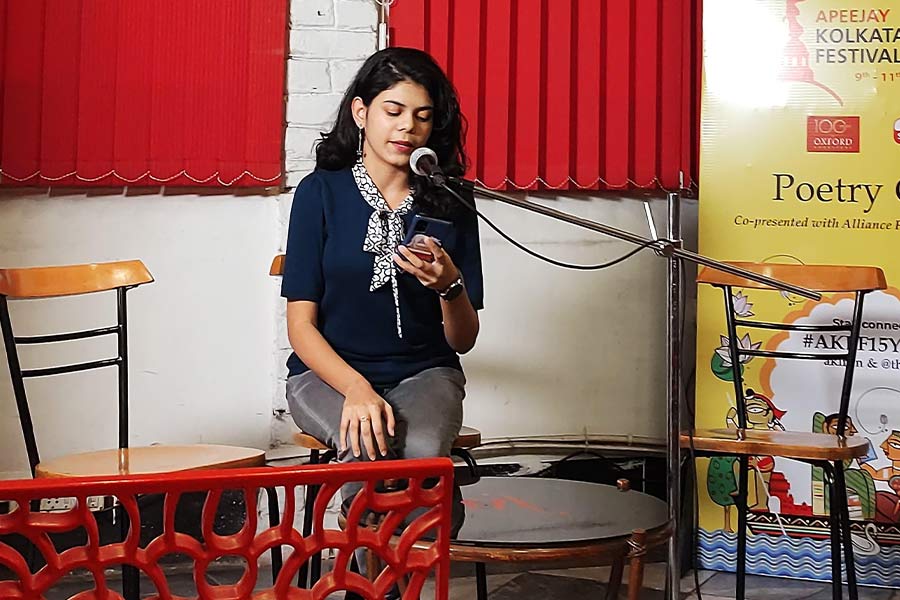
Debarati Pal’s poetry is a way to find catharsis within emotional turmoil
An admirer of John Keats, Mary Oliver and Agha Shahid Ali, Debarati recited two poems. My Grandfather at 94 is about her own grandfather’s battle with dementia, and the different ways in which memory works. Amphibious Thoughts is about the darkness within a heart, caused by death and healed by writing.
She even published her writing in a book titled Weaving With Words and feels strongly about the platform self-publishing gives to budding poets like her. “The scope for self-publishing has opened new avenues for us, especially in India where poetry is largely underrepresented by the big publishing houses. The biggest constraint of self-publishing though, is not getting the editing and designing support that huge publishing houses provide. Their professional feedback is a huge avenue of growth for a writer,” she said.
Fantasies about the moon
Subhadrakalyan, a musician who recently completed his Masters in Comparative Indian Language and Literature from University of Calcutta, read poems from his collection, Embers and Ashes, launched by Abhijoy Prakashani at the Kolkata Book Fair this year. Both his poems, Moonstruck and Clair de lune, reflect his fantasies about the moon.
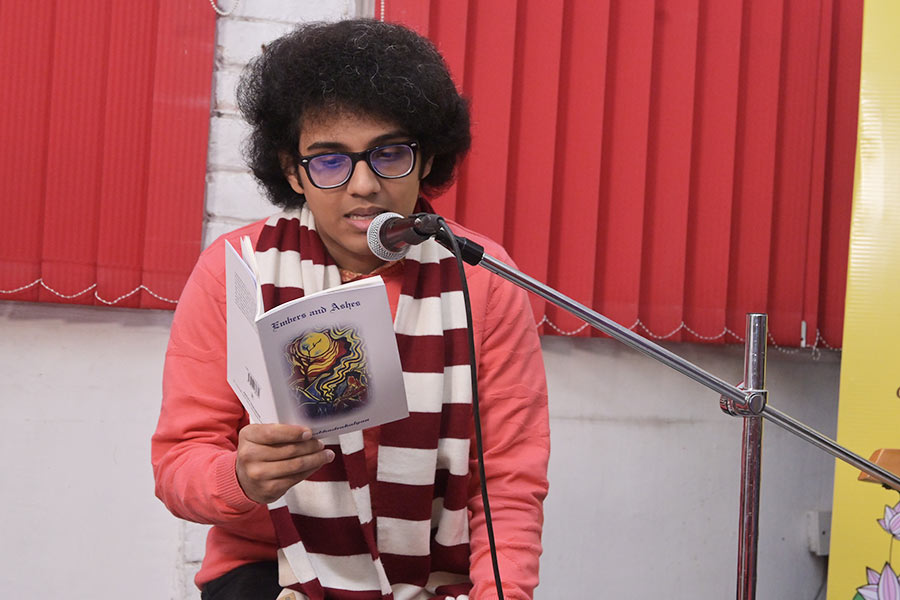
For Subhadrakalyan, poetry helps give voice to the dreams and experiences that overwhelm him
“Moonstruck is about the warm dialogues I shared with the moon until I was at the doorstep of my teens. It has a strong reference to Vilayat and Imrat Khan’s Chandni Kedar. Imrat Khan’s firm and assuring strokes echo the moon’s enticing authority, and Vilayat Khan’s lilting phrases have my heart racing. Clair de lune is a mock-rewrite of Verlaine’s poem of the same name, talking about my more mature fantasies around the moon after I grew up,” he said.
Music plays a key role in his poetry, acting as a reference point to bring disjointed visions to a harmony. “My poetry is mostly driven by my dreams and personal experiences that overwhelm me,” he added.
Inspired by the human condition
Debadyuti Dasgupta is a military historian, having written a book, Call of the Fatherland, around the 1971 War, focusing on the battles of Garibpur and Khulna. His Facebook page chronicling the war has amassed a strong 43,000 followers too.
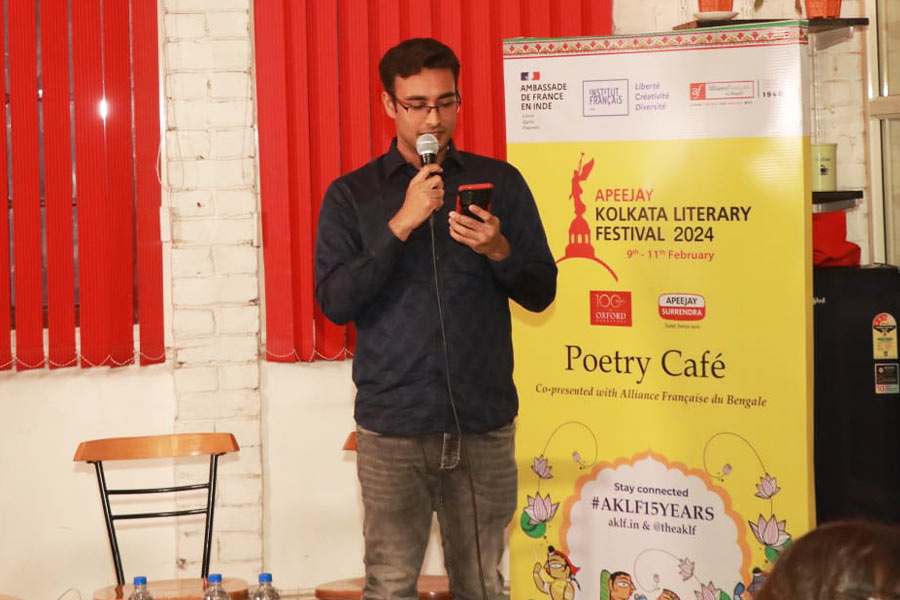
Debadyuti Dasgupta’s poetry reveals his cynicism towards the human race, and holds a mirror to society
An admirer of George Carlin and George Orwell, there is an inherent cynicism in his poetry, as was seen when he recited A Beautiful Suicide. Sprinkled with dark humour, the poem delves into the suicides by middle-class men in corporate and low-paying jobs, while contemplating on ways to stop it.
His ideas are driven by even more cynicism. “The human condition of meaningless suffering is what inspires my poetry. I think people deserve better disorganised chaos, than power being in the hands of a few. I have no sympathy for human beings and believe that we suffer for our own decisions and deeds. The madness within each individual isn't talked about in an open way. Through my art, I try to subvert their suppression and bring it in the open,” he said.
